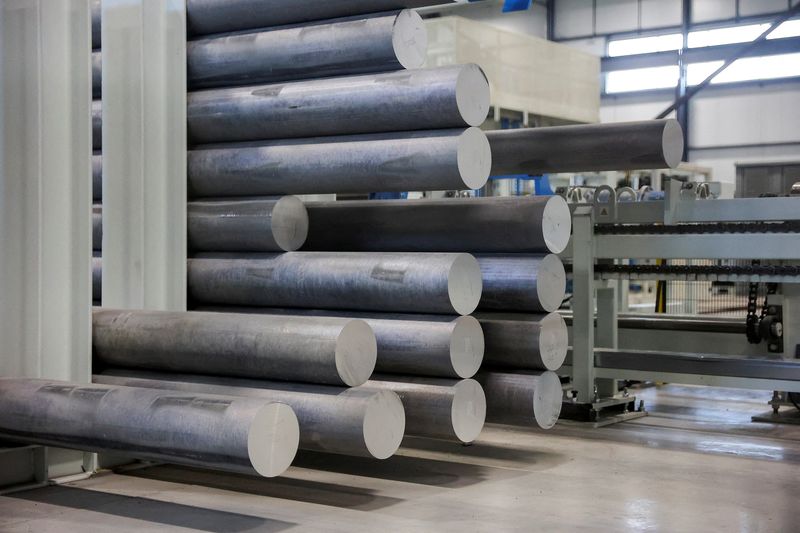The federal government is considering financial support for Canadian aluminum producers following the United States’ decision to impose new tariffs on aluminum imports. This move could significantly impact Montreal’s robust aluminum sector, which has long been a cornerstone of Quebec’s industrial landscape.
Last week, the Biden administration announced a 25% tariff on primary aluminum imports from several countries, including China, and a 10% tariff on certain semi-finished aluminum products. While Canada currently remains exempt from these new measures, the situation has raised concerns throughout Quebec’s aluminum valley.
“We’re watching developments closely,” says Martin Tremblay, spokesperson for the Aluminum Association of Canada. “Though we’re exempt now, market disruptions could still affect our industry here in Montreal and throughout Quebec.”
The potential support package could include loan guarantees and direct financial assistance to help producers weather any market instability. Montreal-based producers, who employ thousands in the region, would likely benefit from such measures.
During my recent visit to the Alouette smelter facility in Sept-Îles, I witnessed firsthand the scale of Quebec’s aluminum operations. The province produces nearly 60% of Canada’s aluminum, with many corporate offices based right here in Montreal.
Deputy Prime Minister Chrystia Freeland emphasized Canada’s vital role in North American aluminum production during her address to industry representatives at Place Ville Marie last month. “Our aluminum supply chains are deeply integrated, and maintaining this relationship benefits both countries,” she noted.
For Montreal residents, the aluminum industry’s health extends beyond factory jobs. The sector supports countless service businesses, from specialized engineering firms in the Technoparc to transportation companies along the St. Lawrence corridor.
Local economic analyst Sophie Bergeron explains, “When aluminum thrives, we see positive ripple effects throughout Montreal’s economy. It touches everything from port activity to research at our universities.”
The federal support would aim to prevent market disruptions that could lead to job losses or facility closures. Quebec’s aluminum industry employs over 30,000 people, with a significant concentration in the greater Montreal region.
Premier François Legault has also pledged provincial support, stating, “Quebec stands ready to protect our aluminum sector. These jobs and communities matter deeply to us.”
For families in aluminum-producing regions like Saguenay-Lac-Saint-Jean, who often have Montreal connections, these developments create uncertainty. Many have relatives who commute between Montreal and production facilities or who have relocated to the city while maintaining ties to aluminum-producing regions.
Industry observers note that while Canada’s current exemption is positive, global trade tensions require vigilance. The federal support package represents a proactive approach to potential market shifts.
“We’ve seen before how quickly tariff situations can change,” remarks Jean Simard, president of the Aluminum Association of Canada. “Being prepared helps protect our industry and communities.”
As this story develops, Montreal’s aluminum sector remains cautiously optimistic. The city’s position as a hub for aluminum corporate offices means decisions made here will shape the industry’s response to changing trade conditions.
For now, Montrealers can take some comfort in the federal government’s commitment to supporting this vital industry that has helped shape both our city’s economy and Quebec’s industrial identity for generations.







